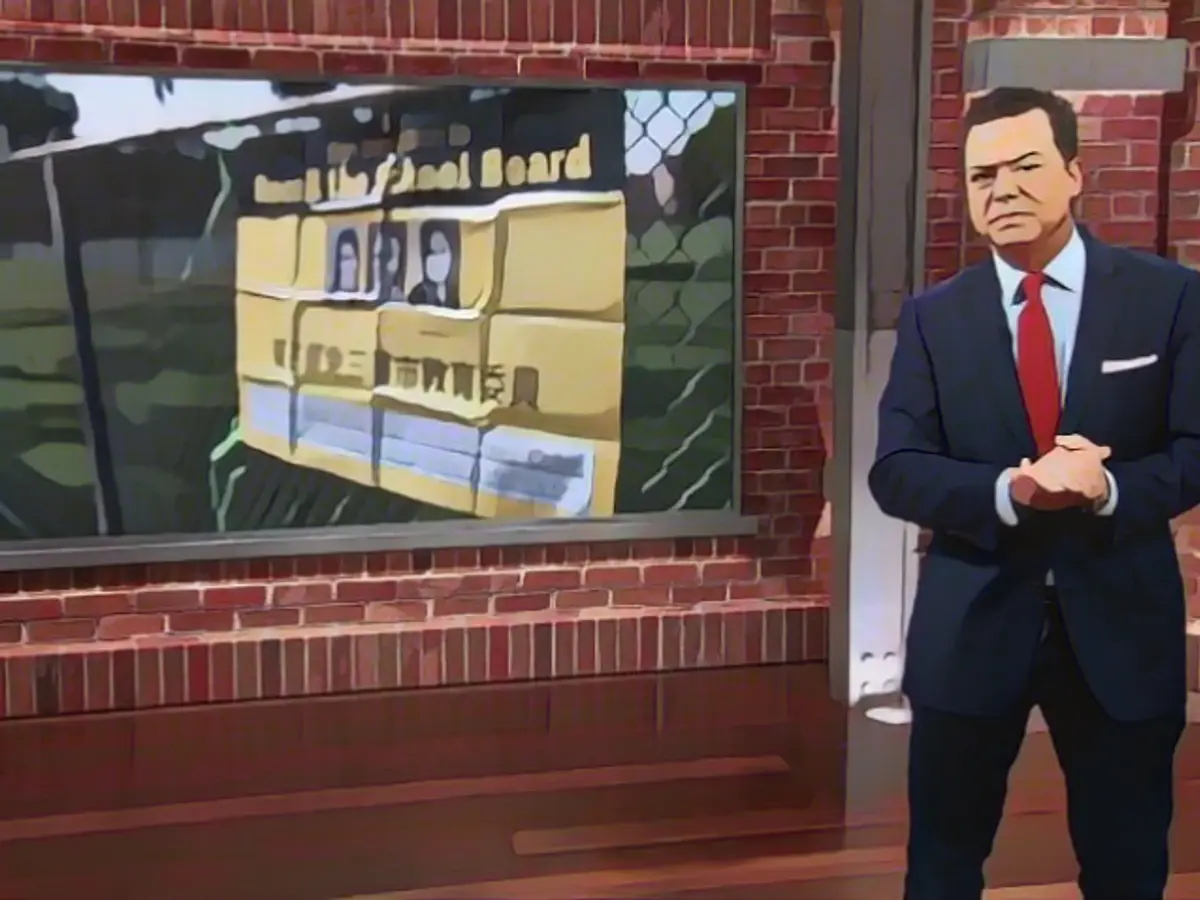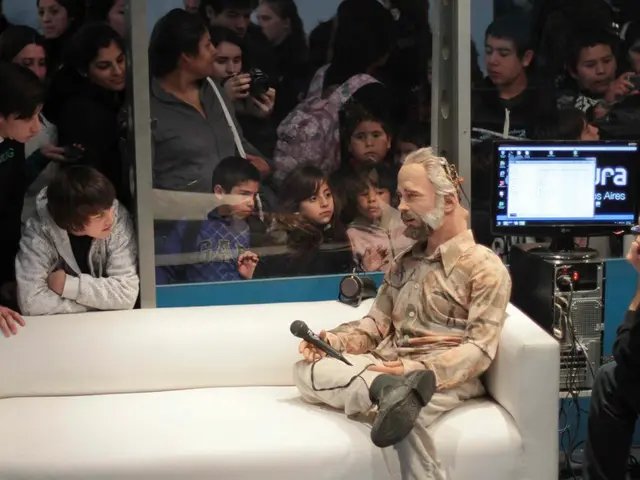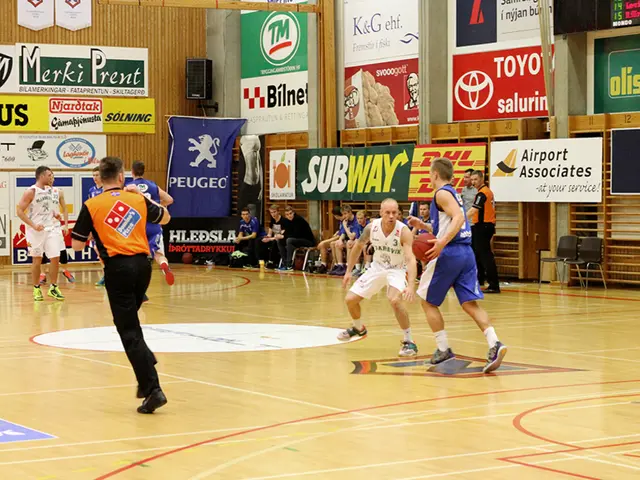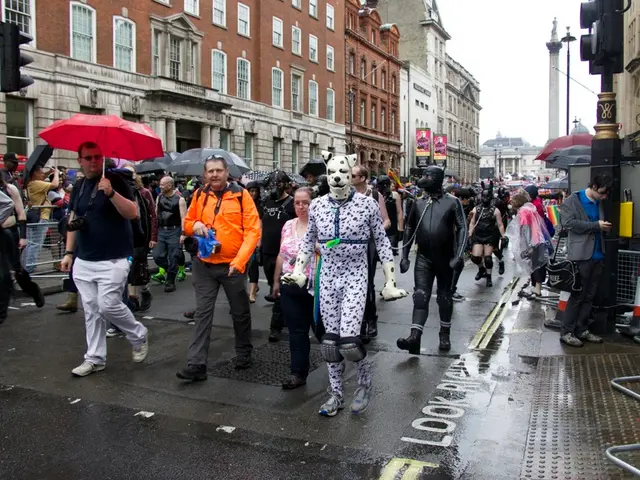San Francisco's wake-up call
The weekend after President's Day was marked by a significant shift in history, from Beijing to Ukraine, and even the United States. It's true, as L.P. Hartley put it, "The past is a foreign country: They do things differently there." But we still travel to this foreign land.
The misuse and misappropriation of history have been the roots of numerous conflicts currently gripping American society and politics.
Last January, the San Francisco Unified School District voted to rename 44 schools and removed schools honoring figures like Lincoln, Washington, Jefferson, Paul Revere, and Senator Dianne Feinstein from the roster due to various reasons. Following criticism from parents, the mayor, and the San Francisco Chronicle, the school board changed its course in April.
The fiasco was just one reason for the recent recall elections that resulted in the ouster of three school board members last week. In an analysis, Nicole Hemmer noted increasing school closures during the pandemic, attempts to waive test and GPA requirements for elite public schools, growing achievement gaps, massive budget deficits, and even the use of racist slurs by a school board member.
"Right-wing donors with deep pockets have poured money into the recall, while activists and the media started using language that brought together numerous complaints into a coherent message," Hemmer observed. "When strong Democratic politicians often lack the courage to engage in opposition politics, they can align with the outrage or hide in the shadows and wait for it to pass. But they and progressive activists have the responsibility to amplify their efforts, by focusing more on reality and combating moral panic by paying attention to narratives whose needs are being ignored."
Mark Z. Barabak of the Los Angeles Times referred to the recall as "a warning" -- as if the Democrats needed another. Midterm elections could be "dire" as parents' anger and frustrations spill over onto the ballots.
Henry Olson wrote in the Washington Post that the recall was a "landslide." "72 to 79 percent of San Francisco voters voted to oust them. Every San Francisco district voted against the three board members, with over 70 percent in predominantly Asian neighborhoods like Chinatown, Richmond, and Sunset. 80 percent voted against them." No one can convincingly argue that this is a case of Republican meddling to fan voter discontent.
As of June, San Francisco voters will decide whether to recall District Attorney Chesa Boudin. According to Jill Filipovic, Boudin made a shocking claim this week: The San Francisco Police Department's DNA lab used DNA evidence from rape kits and put it into a DNA database to identify suspects for other crimes... The potential damage, if true, could be significant. If a rape survivor believes that evidence collected from a rape kit will be used against them, it adds another reason to the list of people who distrust the criminal justice system or simply don't seek justice.
Campus Wars
The pressure of the COVID-19 pandemic has reshaped education policy, dividing the Democrats and opening up opportunities for the Republicans, as reported by Ron Brownstein for CNN Politics. The turning point, as Brownstein noted, is that the Republicans have actively questioned how teachers in public schools talk about sensitive subjects like race, gender, sexual orientation, and others. This has been an issue since a series of state laws banned the teaching of evolution in the 1920s and the rise of anti-communist loyalty among teachers during the Joe McCarthy era in the 1950s. These efforts mark the strongest push since World War II to set legal boundaries for the specific content of curriculum.
"Lessons Mislearned"
Some people seem to believe that our lives are but lessons to help white people understand. As Spike Lee's character, Mars Blackmon, famously said, "It is not that deep." In 2020, many of us fled to our books, art, or the streets, believing that reading, learning, or protesting would magically change the deeply embedded systemic white supremacy in our country.
Two years later, we are once again confronted with white backlash and white exhaustion. Some want to eradicate us. Others want to control us. These reactions ignore the power in our presence. We don't need to be perfect or exceptional to survive. We don't need to be extraordinary or superhuman. None of that is necessary. The power lies in our existence...
Justin Guest wrote that the Democratic situation in the midterm elections has become more complex as they grow increasingly concerned about the large number of Latino voters who are open to supporting the Republicans. "Latinos have always been a diverse group in terms of economics, culture, and both racial and national heritage," he wrote. "But politically, they have consistently been reliable Democrats."
"Maybe that is no longer the case," he added. New polls show that some Latino voters are increasingly supporting the Republicans as the conservative politics adopt a strong nationalist tone and people feel a sense of cultural threat.
Divided Nation's Challenges
John Avron, in his new book about Lincoln's peace plan after the Civil War, wrote that Lincoln referred to himself as the "prophet of reconciliation" and called on Americans to "overcome all the dualities that divide us: North and South, black and white, free and slave -- and to promote the recognition of our common humanity around the world" so that "America's promise can be fulfilled and become a beacon for the world."
Ukraine's Uncertainty
No one outside the Kremlin knows what Putin's intentions are with the massive troop buildup along the Ukrainian border. According to The Economist, this could be Europe's largest force increase in 40 years. Russia has mobilized forces from all its territories, including its eastern military district, which extends as far north as North Korea.
As for what will happen in Ukraine, we can only be certain about one thing: it will be unpredictable, as Frieda Gittes wrote. "No matter how meticulous and well-thought-out military plans are, they will not follow them exactly as planned. ... This is the well-known geopolitical wisdom that the former heavyweight boxing champion Mike Tyson imparted: "Everyone has a plan until they get punched in the mouth."
The Olympics' Oblivion
Kaitlyn Weaver, an Olympic figure skater who represented Canada in 2014 and 2018, had always dreamed of competing in the Olympics. But during this year's Olympics in Beijing amid the controversy surrounding Russian figure skater Kamila Valiyeva's positive drug test, experience turned into painful reality for Weaver and many others.
Valiyeva finished fourth in the individual competition despite being expected to take the lead. "Figure skating is an ethereal and beloved sport with a rich history of scandals and controversies, both confusing and beautiful," Weaver wrote. "Losing trust that fair play will prevail damages our sport and our morality. While Russia has laid the foundation for much of our sport's history, it seems to be the root of every damaging narrative."
Weaver noted that a country that cannot adhere to the rules should not be allowed to participate at all. The ongoing circus surrounding the Olympics is just one more instance where we find ourselves, unable to trust the system.
Raw Dough Woes
The Omicron wave has subsided in many parts of the US, but officials and business leaders must now grapple with its aftermath. As Dr. Kent Sepkowitz noted, it's now important to shift focus to disaster recovery plans, should new outbreaks arise. The argument for "living with COVID" is that we take risks every day, from driving cars to eating less-cooked chicken. But Sepkowitz warned against conflating personal and public health recommendations. "Raw chicken is not contagious," he noted. "If you want to take risks, go ahead, but a mask and social distancing are still good ideas ... "
Source:
Enrichment Data:
- The recall of school board members in San Francisco was primarily driven by voter dissatisfaction with the city's COVID-era policies, particularly those related to education and public health.
- The community in San Francisco, particularly in the Sunset neighborhood, responded to these policies by organizing and mobilizing against them, propelling the recall efforts forward.
- The recall of school board members was part of a larger trend of voter dissatisfaction with progressive policies and leadership, not limited to San Francisco but observed in other cities across the United States.
- Some proponents argued that the recalls were driven by genuine constituent dissatisfaction, while others framed it as a conservative or "dark money" attempt to undermine progressive leadership.
- The recalls in San Francisco and other cities garnered national attention, reflecting a broader shift in American politics where voter dissatisfaction and recall efforts are becoming more common tools for holding elected officials accountable.







